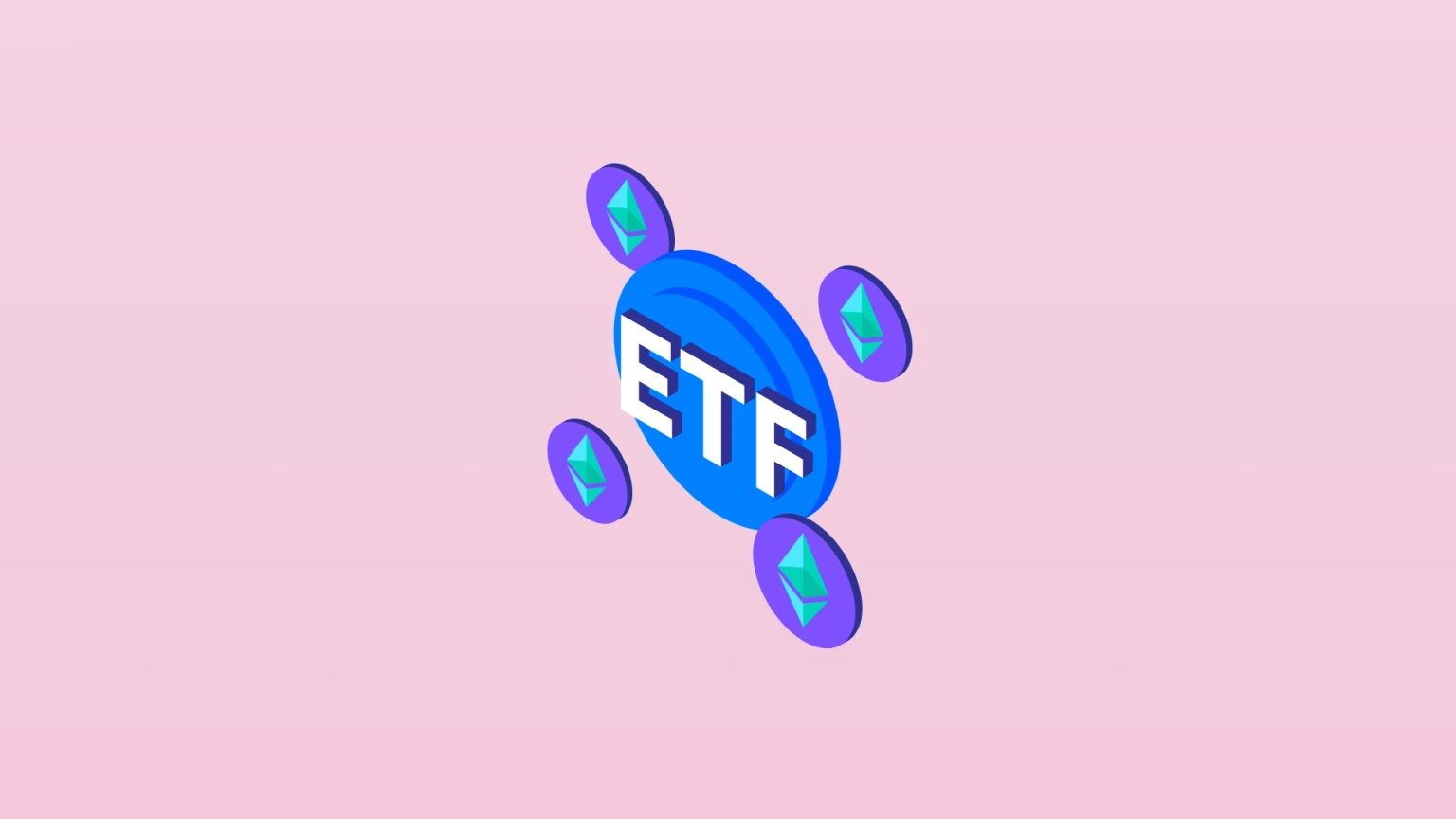
Collaboration between Neptune Mutual and SushiSwap
Explore Neptune Mutual's ongoing collaboration with SushiSwap offering several benefits.
Youtube Video
Playing the video that you've selected below in an iframe

Learn about Ethereum ETFs, its approval prospects and benefits to the crypto ecosystem.
The recent approval of Bitcoin ETFs has been a landmark event for the cryptocurrency industry, signaling the acceptance and integration of crypto into the mainstream financial world. This milestone has not only enhanced the credibility of cryptocurrencies but also significantly boosted confidence among the crypto community.
Amidst this backdrop of optimism and growing acceptance, the question on many minds is whether Ethereum, the second-largest cryptocurrency by market capitalization, will follow suit. The potential approval of an Ethereum ETF is eagerly anticipated, as it could further solidify the position of cryptocurrencies within the regulated financial markets, offering investors a new avenue to gain exposure to digital assets.
The crypto community is abuzz with speculation, looking forward to seeing if Ethereum will be the next to receive the green light for an ETF.
Before delving into the details of Ethereum ETFs, we want you to understand that Neptune Mutual doesn’t provide investment advice. This article neither aims to provide financial guidance nor it is promoting any specific assets. We strongly advise conducting your own research before making any investment decisions.
An ETF, or Exchange-Traded Fund, is a type of investment fund and exchange-traded product, i.e., they are traded on stock exchanges. ETFs hold assets such as stocks, commodities, or bonds and generally operate with an arbitrage mechanism designed to keep trading close to their net asset value. They play a crucial role in investment portfolios by offering diversification, lower fees, and ease of trading compared to direct investments in their underlying assets.
Crypto ETFs are slightly different from traditional ETFs. Rather than holding Ethereum directly, these ETFs often hold futures contracts. It provides a bridge for traditional investors to enter the crypto market without the complexities of direct trading or ownership.
The Ethereum ETF tracks the price of ETH through futures contracts and enables users to trade the tokens through traditional stock exchanges. These futures contracts are agreements to buy or sell ETH at a predetermined price at a future date, which allows the ETF to indirectly track the price movements of Ethereum.
This structure offers significant advantages. It enables investors to gain exposure to Ethereum's price fluctuations without the need to directly buy, store, or manage the cryptocurrency. This not only simplifies the investment process but also mitigates the risks associated with digital assets. As such, Ethereum ETFs represent a pivotal financial product for those looking to diversify their investment portfolio into the burgeoning field of cryptocurrencies, combining the traditional benefits of ETFs with the innovative potential of digital assets.
As mentioned earlier, the cryptocurrency landscape is likely going to witness a significant transformation with the potential approval of Ethereum (ETH) spot ETFs.
Spot Ethereum ETFs are designed to offer investors direct exposure to the current market price of Ethereum. Unlike futures ETFs that rely on contracts predicting future prices, spot ETFs' value is directly tied to the real-time market price of Ethereum. This direct linkage aims to provide a transparent and straightforward way for investors to tap into the Ethereum market without the complexities of managing cryptocurrency directly.
The approval of Bitcoin spot ETFs by the U.S. Securities and Exchange Commission (SEC) has set a precedent, igniting discussions and anticipation for a similar green light for Ethereum ETFs. This anticipation has been a contributing factor to Ethereum's price surge, exceeding the $3000 mark in recent days. The crypto community is abuzz with optimism, speculating on the high likelihood of Ethereum ETF approval in the near future.
Prominent voices within the crypto sphere have expressed confidence in the inevitability of an Ethereum ETF. Ben Weiss, CEO of CoinFlip, remarked to Techopedia on the inevitability of an ETH ETF. He stated, ”An ETH ETF is most likely inevitable. However, that’s not to say the road to approval will be easy, considering the first BTC ETF was filed over 10 years ago. That said, reputable firms like Blackrock and Grayscale have already applied for ETH ETFs and are eagerly waiting for the green light to pull the trigger.”
Similarly, Ryan Lee, chief analyst at Bitget Research, said, “The stage has been set as Ethereum futures ETF already trades in the US, checking one of the first prerequisites the SEC looks out for. Overall, we believe the approval of ETH ETF is possible.”
The approval of an Ethereum spot ETF is expected to have a profound impact on the investment landscape. It will lower the barriers for traditional investors to engage with Ethereum, offering a regulated and simplified investment avenue. This ease of access is anticipated to attract more capital into the Ethereum ecosystem, enhancing its liquidity and potentially its market value.
Financial experts suggest that an Ethereum ETF would further cement Ethereum's position in the mainstream financial system, increasing its appeal and value to a broader range of investors. The integration of Ethereum into regulated financial products like ETFs could mark a significant milestone in the cryptocurrency's journey towards widespread acceptance and adoption.
There’s no doubt that the approval of Ethereum ETFs would have massive upsides within the crypto market. This pivotal moment is not just about the expansion of Ethereum's reach but also about setting a new standard for accessibility, liquidity, and trust in the cryptocurrency domain.
In addition, by passing through the rigorous scrutiny required for ETF approval, Ethereum would be viewed as a more legitimate and stable investment option. This heightened credibility is likely to encourage more users to participate in the Web3 space, armed with greater confidence in the security and potential of their investments.
At the heart of the anticipation for an Ethereum ETF is the critical importance of security and protection of funds. An approved ETH ETF could serve as a catalyst for growth, innovation, and increased adoption of blockchain technology and cryptocurrencies.
With more users joining the Web3 space, it will bring more funds, which will invite the threats prevalent in the space. Malicious actors in Web3 are always looking to exploit weaknesses, such as smart contract vulnerabilities, and steal users’ funds. They can also target users with sophisticated attacks like phishing, flash loan attacks, front-running attacks, rug pulls, and so on.
Staying alert to these dangers is essential, but it's not sufficient on its own. It's crucial for users to conduct in-depth research on projects and only interact with those that have a good reputation. While smart contract audits can greatly lower the risks, they don't offer complete protection from these threats.
DeFi insurance has become an important instrument for reducing the risks associated with DeFi threats. It could be your lifeline in the upcoming bull market, considering the inevitable threats that lurk behind the market booming with market depth and trading volume.
With that in mind, let's delve into Neptune Mutual, a coverage solution made for protecting digital assets.
Neptune Mutual is a DeFi insurance protocol aimed at protecting users' cryptocurrency assets and funds. Our goal is to ensure the DeFi space is secure for everyone's financial endeavors by providing coverage against unexpected risks like hacks, exploits, and security breaches.
Our project is based on a parametric model, eliminating the need for proof of loss or extensive claim assessments, and instead relies on predefined parameters for payouts.
We feature a marketplace where projects can create their own insurance pools on the Ethereum, Arbitrum, and BSC networks. Projects interested in offering insurance to their users can contact us to set up tailored insurance pools with specific parameters. Additionally, crypto users seeking to safeguard their investments can buy coverage policies from the available pools in the marketplace.
For more information, updates, and offers from Neptune Mutual, visit our website, follow us on Twitter (X), and join our Discord community.